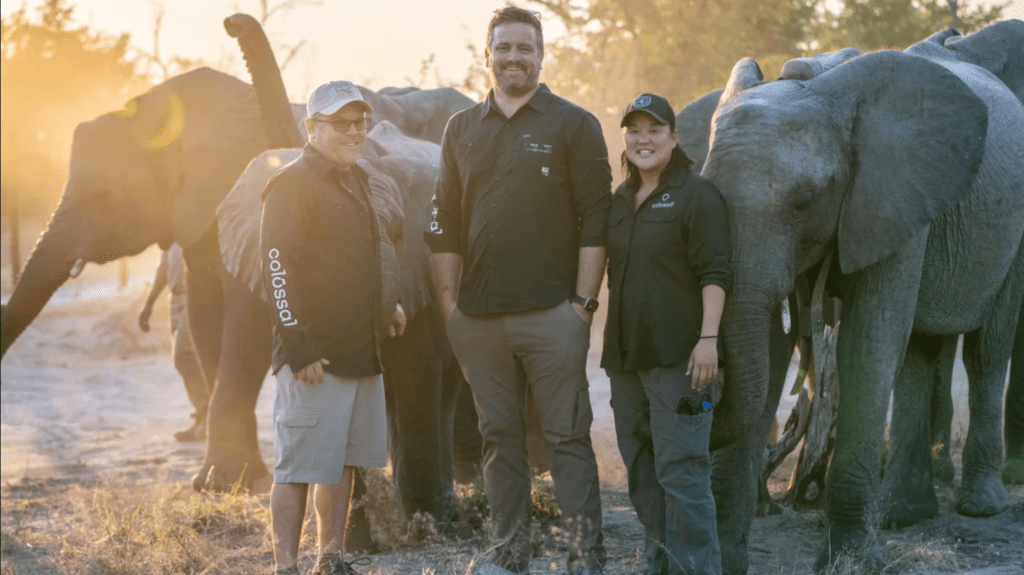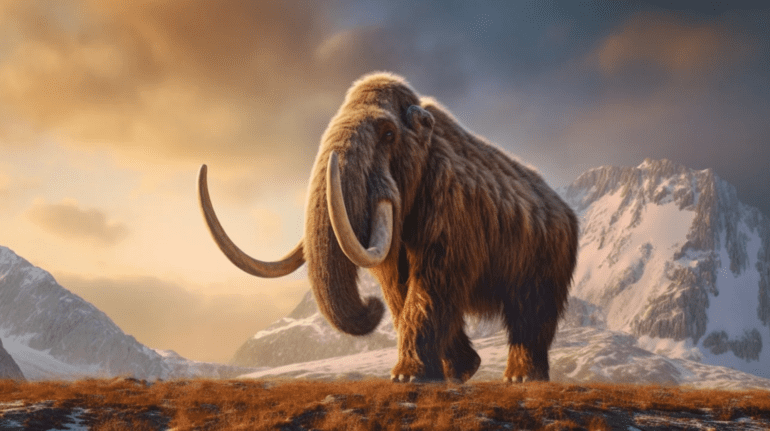TL;DR:
- US biotech startup Colossal aims to revive the woolly mammoth through genetic engineering and reintroduction to the Arctic tundra.
- Colossal collaborates with Elephant Havens, a wildlife foundation in Botswana, to analyze the behavior of orphaned elephants using AI and genetic data.
- Elephant Havens employs a long-term reintroduction project, gradually acclimating orphaned elephants to independence in a controlled environment.
- The partnership between Colossal and Elephant Havens aims to provide insights into the successful releases of elephants and mammoth hybrids into the wild.
- AI technology is employed to record and analyze elephant behavior, enhancing our understanding of social dynamics and leadership models.
- Colossal’s research includes sequencing the genomes of Elephant Havens’ orphans, allowing for the comparison of genetic traits as elephants mature.
- The knowledge gained from these efforts contributes to the construction of the mammoth-elephant hybrid genome and can benefit wider animal conservation.
Main AI News:
The resurrection of long-extinct species has always fascinated scientists, and US biotech startup Colossal is leading the charge in this bold endeavor. As a self-proclaimed “de-extinction company,” Colossal aims to revive the magnificent woolly mammoth, a creature that vanished from the Earth 4,000 years ago, at the end of the last ice age.
Reviving the woolly mammoth is no small feat. Colossal’s audacious plan involves creating a genetically engineered Asian elephant-mammoth hybrid and reintroducing it to the Arctic tundra. With substantial financial backing and a mix of curiosity and scientific skepticism, the project is making significant strides forward.
However, Colossal faces numerous challenges on its path to success. Crafting the animal’s genetic sequence, successfully fertilizing an egg, and nurturing it to term are just the initial hurdles. But the journey doesn’t end there. The critical question of how these mammoth hybrids will adapt and thrive in the wild remains and Colossal is turning to other animals for invaluable insights. Among its collaborators is Elephant Havens, a renowned wildlife foundation in the Okavango Delta, Botswana, dedicated to caring for orphaned elephants.
In a groundbreaking collaboration, Elephant Havens, founded in 2017, will join forces with Colossal in an extensive data-gathering operation. Leveraging the power of artificial intelligence (AI), the organizations will analyze the behavior of the elephants under their care and pair it with genomic data for each individual. By blending the art of elephant handling with cutting-edge science, Elephant Havens and Colossal hope to create a blueprint for the successful release of both elephants and mammoth hybrids into their respective habitats.
The Elephant Havens co-founder, Debra Stevens, explains that human-wildlife conflicts are responsible for the orphaning of elephants in Botswana, with many of them becoming victims of fires. The separation from their herds and the loss of their mothers is a tragic experience, as elephants are known to grieve deeply. Stevens emphasizes that reintroducing orphaned elephants into the wild is a complex task due to intricate social hierarchies. Nevertheless, Elephant Havens has embarked on a long-term reintroduction project, gradually acclimating orphans to independence within a carefully monitored and enclosed 1,000-acre site.
At present, a group of seven elephant youths, including a matriarch and a male, reside within the soft release area, while seven younger elephants are nurtured at the orphanage and will join the enclosure in due course. After spending five years in this controlled environment, Elephant Havens will reintroduce the bonded herds into the wild and observe their progress for an additional decade.
Colossal, inspired by Elephant Havens’ expertise, intends to combine their know-how with AI modeling and genetic data analysis to gain deeper insights into the elephants’ behavior. Matt James, Chief Animal Officer at Colossal, highlights the use of stationary cameras to record video, which will be transformed into data points and used to train AI algorithms in understanding elephant social behaviors, such as leadership models. This groundbreaking application of AI in comprehending and interpreting elephant behavior is a novel approach, expanding our understanding of these magnificent creatures.
Ben Lamm, the founder of Colossal, recognizes the role of AI in animal research, asserting that technology widely employed in corporate America and defense sectors can profoundly impact conservation efforts. Lamm emphasizes the importance of equipping those on the frontlines of conservation with the tools they need. In this regard, Colossal is actively sequencing the genomes of Elephant Havens’ orphans, enabling a comparison of genetic traits as the elephants mature.
All the knowledge gained from these collaborative research efforts seamlessly integrates with Colossal’s primary mission: constructing the genome of its mammoth-elephant hybrid. By meticulously analyzing 54 mammoth genes associated with cold tolerance and shaggy coats, Colossal’s team is now editing 20 genes into a single Asian elephant cell. In parallel, the company is pioneering ovum pick-up (OPU) techniques in elephants, a pivotal step towards creating an embryo.
Colossal envisions that the scientific breakthroughs achieved during their hybrid creation endeavors can be extended to benefit wider animal conservation initiatives. As Lamm asserts, the technologies developed by Colossal will be shared freely with partners, allowing them to make meaningful strides in the realm of conservation. In the next five to ten years, Colossal hopes to make a substantial difference in the field of elephant conservation and inspire a new era of wildlife revitalization.

The Colossal Biosciences team at Elephant Havens, Africa. From left to right: Steve Metzler, Matt James, Dr. Wendy Kiso. Courtesy Colossal
Conclusion:
The collaboration between Colossal and Elephant Havens, along with the implementation of AI monitoring and genetic research, signifies a significant advancement in wildlife conservation efforts. The use of AI technology to understand and analyze elephant behavior has practical implications for the broader market. It highlights the potential for AI to revolutionize the field of animal research, offering invaluable insights that can be applied not only to de-extinction projects like the woolly mammoth but also to conservation initiatives for existing endangered species. This innovation has the power to reshape the market by providing novel solutions and methodologies for wildlife preservation and management.

